Filter by
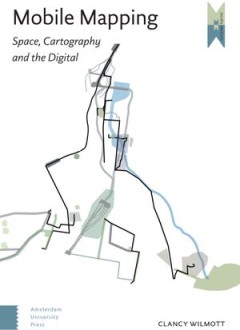
Mobile Mapping: Space, Cartography and the Digital
This book argues for a theory of mobile mapping, a situated and spatial approach towards researching how everyday digital mobile media practices are bound up in global systems of knowledge and power. Drawing from literature in media studies and geography - and the work of Michel Foucault and Doreen Massey - it examines how geographical and historical material, social, and cultural conditions ar…
- Edition
- -
- ISBN/ISSN
- 9789048535217
- Collation
- -
- Series Title
- -
- Call Number
- 302.23 WIL m
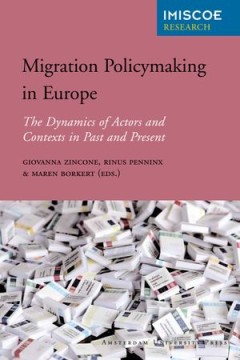
Migration Policymaking in Europe
This important work analyses immigration and immigrant inclusion policies in ten European countries, examining how such policies are formed and subsequently implemented. The study singles out the important role of usually overlooked factors and actors that significantly affect policymaking alongside the formal legal framework. It also identifies similarities and diversities in European immigrat…
- Edition
- -
- ISBN/ISSN
- 9789089643704
- Collation
- -
- Series Title
- -
- Call Number
- 351.81 PEN m
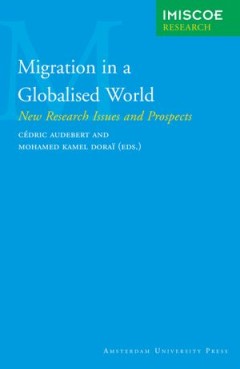
Migration in A Globalised World
The last two decades have witnessed sweeping changes in the composition, orientation and dynamics of international migration. While it's no surprise these transformations affect societies of origin and settlement, we still seek to understand how and why they carry with them certain social challenges. Migration in a Globalised World shines a light. Ten chapters astutely present theoretical and e…
- Edition
- -
- ISBN/ISSN
- 9789089641571
- Collation
- -
- Series Title
- -
- Call Number
- 351.81 AUD m
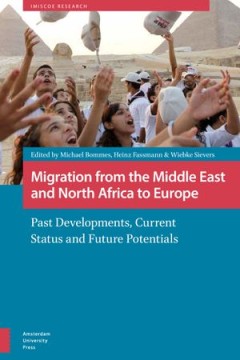
Migration from the Middle East and North Africa to Europe: Past Developments,…
One of the most important challenges concerning the future of the European Union is the demographic reproduction of the European population. Decreasing birth-rates and the retirement of the baby boomers will dramatically reduce the labour force in the EU, which will entail not only a lack of manpower but also lower contributions to European social systems. It seems clear that the EU will have t…
- Edition
- -
- ISBN/ISSN
- 9789048523177
- Collation
- -
- Series Title
- -
- Call Number
- 300 MIG m

Migration and Irregular Work in Austria: A Case Study of the Structure and Dy…
This meticulously researched study of irregular migrant work in Austria holds many broader lessons for countries all over Europe. The book derives many of its fascinating insights from systematic in-depth interviews with migrants themselves. The authors demonstrate that it is no longer enough to divide the world of foreign employment into "legal" and "illegal" work. Instead, over the past few y…
- Edition
- -
- ISBN/ISSN
- 9789089640536
- Collation
- -
- Series Title
- -
- Call Number
- 351.81 GEN m
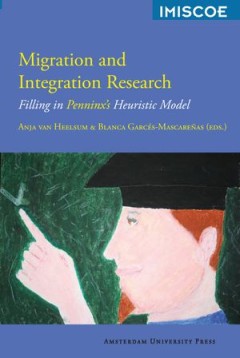
Migration and Integration Research
Rinus Penninx's groundbreaking work has helped to systematise and classify existing research in the field of migration and ethnic studies. His heuristic model makes an important distinction between immigration and integration research and, within the latter, between socio-economic, ethno-cultural and legal-political dimensions. Written as a tribute to Penninx, this volume consists of contributi…
- Edition
- -
- ISBN/ISSN
- 9789089645807
- Collation
- -
- Series Title
- -
- Call Number
- 351.81 GAR m
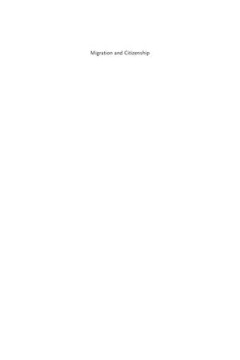
Migration and Citizenship
Citizenship is frequently invoked both as an instrument and goal of immigrant integration. Yet, in migration contexts, citizenship also marks a distinction between members and outsiders based on their different relations to particular states. A migration perspective highlights the boundaries of citizenship and political control over entry and exit as well as the fact that foreign residents rema…
- Edition
- -
- ISBN/ISSN
- 9789053568880
- Collation
- -
- Series Title
- -
- Call Number
- 351.81 BAU m
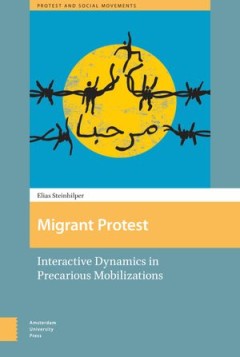
Migrant Protest: Interactive Dynamics in Precarious Mobilizations
Migrant protest has proliferated worldwide in the last two decades, explicitly posing questions of identity, rights, and equality in a globalized world. Nonetheless, such mobilizations are considered anomalies in social movement studies, and political sociology more broadly, due to 'weak interests' and a particularly disadvantageous position of 'outsiders' to claim rights connected to citizensh…
- Edition
- -
- ISBN/ISSN
- 9789048550197
- Collation
- -
- Series Title
- -
- Call Number
- 351.81 STE m
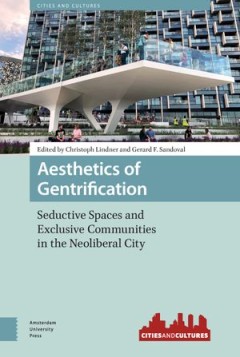
Aesthetics of Gentrification Seductive Spaces and Exclusive Communities in t…
Gentrification is reshaping cities worldwide, resulting in seductive spaces and exclusive communities that aspire to innovation, creativity, sustainability, and technological sophistication. Gentrification is also contributing to growing social-spatial division and urban inequality and precarity. In a time of escalating housing crisis, unaffordable cities, and racial tension, scholars speak of …
- Edition
- -
- ISBN/ISSN
- 9789048551170
- Collation
- -
- Series Title
- -
- Call Number
- -
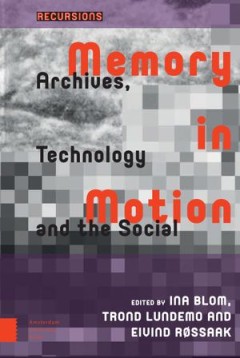
Memory in Motion: Archives, Technology, and the Social
How do new media affect the question of social memory? Social memory is usually described as enacted through ritual, language, art, architecture, and institutions ? phenomena whose persistence over time and capacity for a shared storage of the past was set in contrast to fleeting individual memory. But the question of how social memory should be understood in an age of digital computing, instan…
- Edition
- -
- ISBN/ISSN
- 9789048532063
- Collation
- -
- Series Title
- -
- Call Number
- 300 BLO m
 Computer Science, Information & General Works
Computer Science, Information & General Works  Philosophy & Psychology
Philosophy & Psychology  Religion
Religion  Social Sciences
Social Sciences  Language
Language  Pure Science
Pure Science  Applied Sciences
Applied Sciences  Art & Recreation
Art & Recreation  Literature
Literature  History & Geography
History & Geography